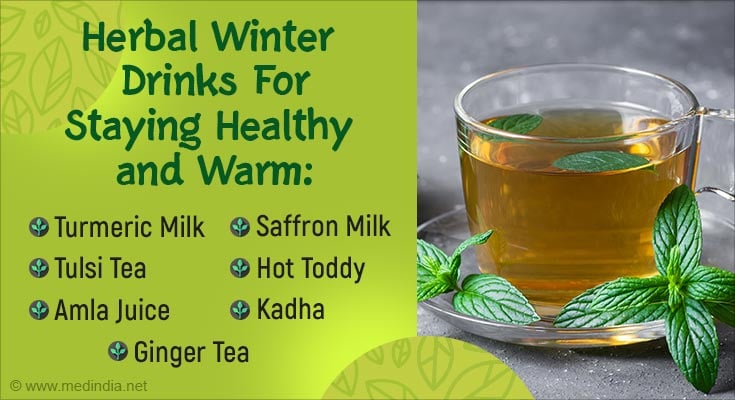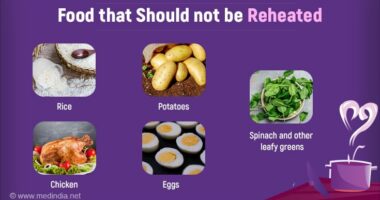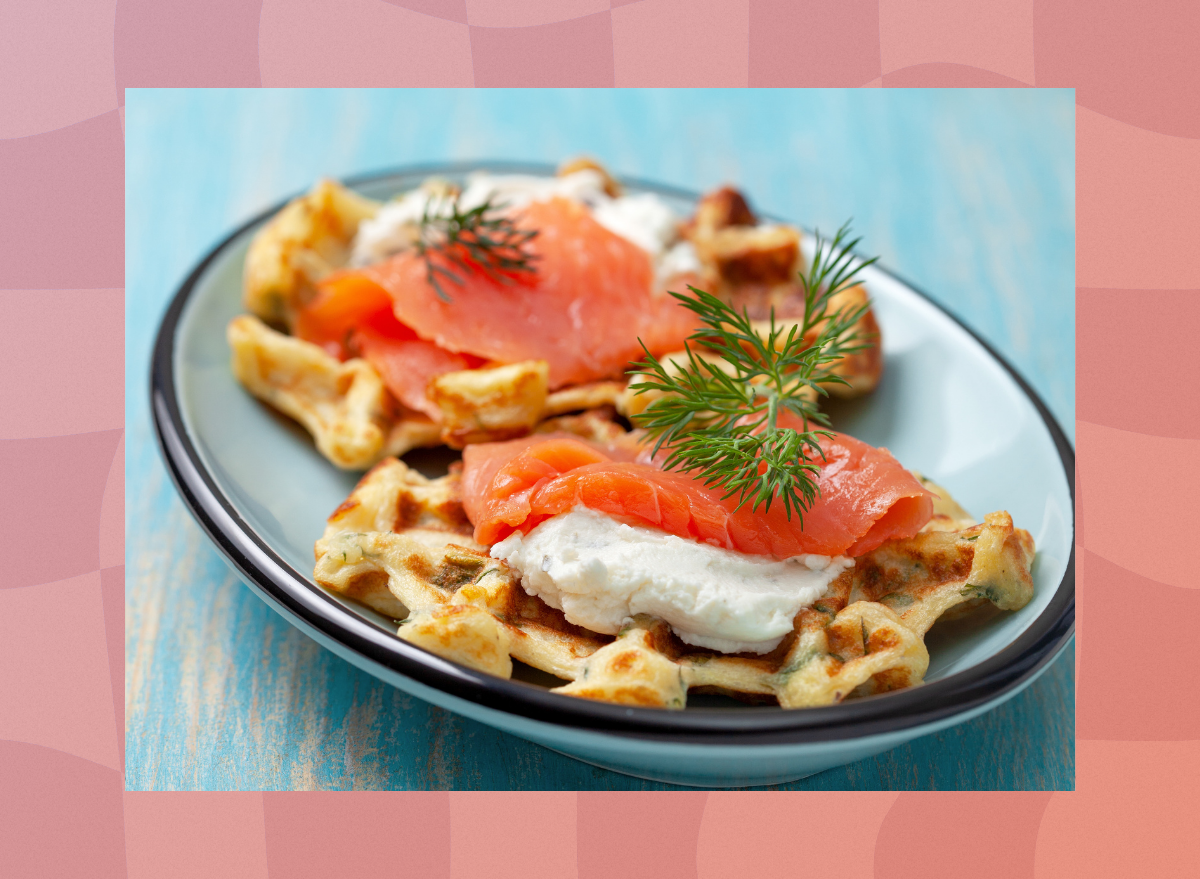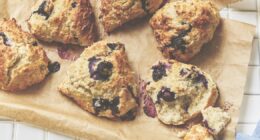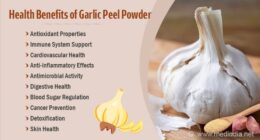), turmeric has been used in traditional medicine for centuries. Turmeric milk, also known as “golden milk,” combines the goodness of turmeric with the comforting warmth of milk. Curcumin, the active compound in turmeric, possesses antioxidant and anti-inflammatory effects that may help alleviate cold and flu symptoms. Additionally, the warmth of the milk provides comfort and can promote relaxation, making it an ideal bedtime beverage.
To make turmeric milk, simply heat a cup of milk (dairy or plant-based) with a teaspoon of turmeric powder, a pinch of black pepper (to enhance turmeric absorption), and a touch of honey for sweetness. Enjoy this golden elixir as a soothing nightcap or as a midday pick-me-up.
Tulsi, or holy basil, is a revered herb in Ayurveda for its medicinal properties. It is known for its adaptogenic qualities, which help the body adapt to
). Tulsi tea is an excellent winter drink as it not only supports the immune system but also helps in relieving respiratory issues. The aromatic and slightly peppery flavor of tulsi adds a refreshing note to the tea.
To prepare tulsi tea, steep a handful of fresh or dried tulsi leaves in hot water for about 5-7 minutes. You can enhance the flavor by adding a slice of ginger or a dash of lemon juice. Sip on this invigorating tea throughout the day to boost your immunity and uplift your spirits.
Amla is a Powerhouse of Vitamin C
Amla, or Indian gooseberry, is a vitamin C powerhouse (3✔ ✔Trusted Source
Amla (Emblica officinalis Gaertn), a wonder berry in the treatment and prevention of cancer
Go to source
). During winter, when the risk of colds and flu is high, incorporating amla juice into your routine can provide a natural immune boost. Vitamin C is essential for maintaining a healthy immune system and protecting the body from infections. Amla also contains antioxidants that contribute to overall well-being.
Advertisement
To make amla juice, blend fresh amla berries with water and strain the mixture to extract the juice. You can dilute it further or sweeten it with honey if needed. Consuming a small glass of amla juice daily can be a delicious and nutritious addition to your winter wellness routine.
Ginger Helps Alleviate Cold and Flu
Ginger is a versatile herb that has been used for centuries for its medicinal properties, especially in alleviating cold and flu symptoms. Ginger tea is a comforting and warming beverage that can help soothe a sore throat, reduce congestion, and provide relief from winter ailments (4✔ ✔Trusted Source
Ginger Root
Go to source
).
To make ginger tea, simply grate or slice fresh ginger and steep it in hot water for 10-15 minutes. You can add honey and lemon for additional flavor and health benefits. Enjoy a cup of ginger tea throughout the day to keep your body warm and resilient against winter woes.
READ RELATED: Post-Surgery Opioid Prescriptions Decline, But More Work Needed
Saffron Improves Mood and Reduces Stress
Saffron, the exotic spice derived from the Crocus sativus flower, not only adds a rich and warm flavor to dishes but also offers various health benefits. Saffron is known for its antioxidant properties and its potential to improve mood and reduce stress (5✔ ✔Trusted Source
Effects of Saffron Extract Supplementation on Mood, Well-Being, and Response to a Psychosocial Stressor in Healthy Adults: A Randomized, Double-Blind, Parallel Group, Clinical Trial
Go to source
). Saffron milk, with its vibrant color and aromatic essence, is a luxurious winter drink that can contribute to overall well-being.
To make saffron milk, warm a cup of milk and infuse a few strands of saffron. Add a touch of honey for sweetness. This indulgent beverage can be enjoyed before bedtime to promote relaxation and enhance sleep quality.
Hot Toddy Reduces Winter-Related Discomfort
The hot toddy is a classic winter drink that has been cherished for its ability to provide comfort and relief from cold symptoms. This traditional beverage typically includes hot water, whiskey, honey, lemon, and spices. The alcohol in the whiskey can help relax the body, while honey and lemon provide soothing and immune-boosting properties.
To make a hot toddy, combine hot water with a shot of whiskey, a tablespoon of honey, and a squeeze of lemon. Feel free to add spices like cinnamon or cloves for extra flavor. Enjoy this warming concoction in moderation to unwind and alleviate winter-related discomfort.
Ayurvedic Kadha Boosts Immunity
Kadha is a traditional herbal concoction from Ayurveda that is specifically crafted to boost immunity and alleviate cold symptoms (6✔ ✔Trusted Source
Evaluation of traditional ayurvedic Kadha for prevention and management of the novel Coronavirus (SARS-CoV-2) using in silico approach
Go to source
). It is a potent blend of various herbs and spices with antiviral and antibacterial properties. Common ingredients include ginger, cloves, cinnamon, black pepper, and tulsi. Kadha is a versatile drink that can be customized based on individual preferences and seasonal availability.
To prepare kadha, simmer the herbs and spices in water for about 15-20 minutes. Strain the mixture and add honey or jaggery for sweetness. Drink this herbal infusion regularly during the winter months to fortify your immune system and ward off common winter ailments.
Incorporating these herbal drinks into your winter routine not only provides warmth and comfort but also supports your overall health. From the immune-boosting properties of Amla juice to the soothing effects of saffron milk, each beverage brings its unique set of benefits. Embrace the winter season with these herbal elixirs, and let the natural goodness of these ingredients enhance your well-being during the colder months. Stay warm, stay healthy!
References:
- Anti-Inflammatory Effects of Curcumin in the Inflammatory Diseases: Status, Limitations and Countermeasures
– (https://pubmed.ncbi.nlm.nih.gov/34754179/) - Tulsi – Ocimum sanctum: A herb for all reasons
– (https://pubmed.ncbi.nlm.nih.gov/25624701/) - Amla (Emblica officinalis Gaertn), a wonder berry in the treatment and prevention of cancer
– (https://pubmed.ncbi.nlm.nih.gov/21317655/) - Ginger Root
– (https://pubmed.ncbi.nlm.nih.gov/33351444/) - Effects of Saffron Extract Supplementation on Mood, Well-Being, and Response to a Psychosocial Stressor in Healthy Adults: A Randomized, Double-Blind, Parallel Group, Clinical Trial
– (https://pubmed.ncbi.nlm.nih.gov/33598475/) - Evaluation of traditional ayurvedic Kadha for prevention and management of the novel Coronavirus (SARS-CoV-2) using in silico approach
– (https://pubmed.ncbi.nlm.nih.gov/33251972/)
Source: Medindia

